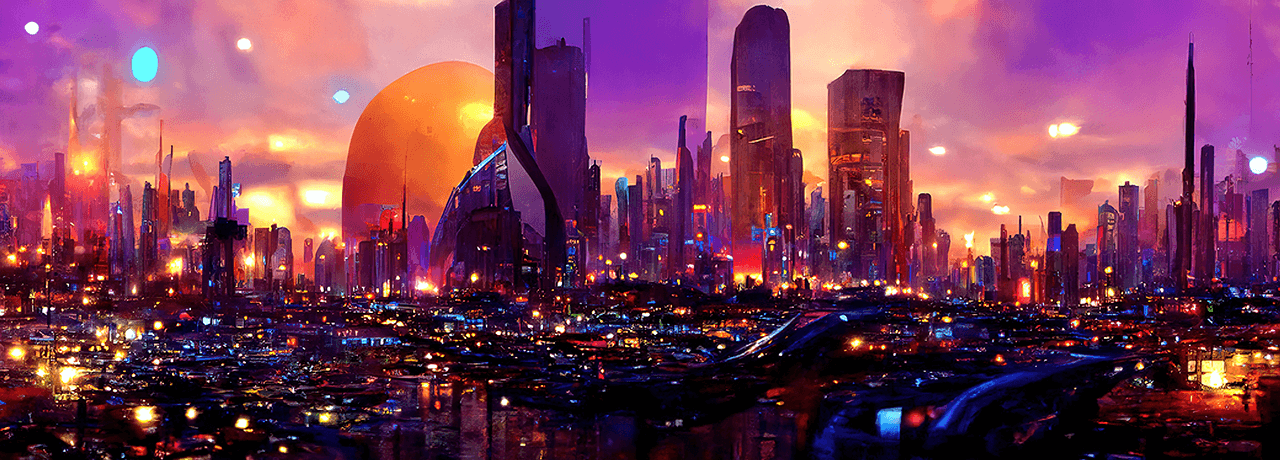Just science fiction? Or a lucrative market? One thing is for certain: the metaverse is becoming incredibly important – also, and especially, for the economy. Companies are investing huge amounts to get in on the action. And this trend is growing. According to financial service institution Bloomberg Intelligence, the metaverse business will be worth around 800 billion US dollars by 2024 already. A business involving a world that essentially does not even exist. The metaverse – unlike virtual reality games, for example – is about multiple interactive 3D worlds in which people come together as avatars, go shopping, attend concerts, and so on. There are now online worlds such as “Decentraland” and “The Sandbox”, which are modelled on the real world in the broadest sense but are more colorful and exciting. What sounds like just a big playground is, for Mark Zuckerberg, the “next generation of the internet”. In October 2021, the CEO of Facebook’s parent company Meta presented his vision of the metaverse to the public.
The bored apes business
What such a parallel world could mean for us as a society remains an exciting question, socially, ethically, economically, and in many other ways. Development is progressing rapidly, especially in the business sector and in terms of digital products. NFTs (non-fungible tokens) are digital, cryptographic forms of assets. NFT ownership can be clearly proven using blockchain technology. Each NFT is therefore unique. Payment is made with cryptocurrencies such as Bitcoins, Dogecoins, or Ethereum. In this way, virtual products also acquire a monetary value – and often become a status symbol. One bizarre example is the Bored Ape Yacht Club, a kind of digital gallery where algorithm-generated images of bored apes can be purchased as NFTs. The whole club is anonymous and extremely elite. You need celebrity status to become a member. Justin Bieber, Madonna, and soccer star Neymar are among the illustrious group of stars who are allowed to buy these apes – and one may wonder who is actually more bored …
The legal side of the metaverse
When it comes to digital products with which a demand is created and trade is conducted, things also get very interesting from a legal point of view. This is where IP rights become hugely important. Companies like Nike, Converse, or Abercrombie & Fitch have recognized this and have extended their trademark protection for digital products at the USPTO, the United States Patent Office. The EUIPO, the European Union Intellectual Property Office, has also received applications for virtual goods and NFTs already. Companies like L'Oréal and Crocs are among the applicants.
Dispute in the parallel universe: high-profile trademark infringement proceedings
Where IP rights exist, they are sometimes infringed. Even in the metaverse, which may be a virtual space, but is by no means a lawless one. There are indeed limits here and actions can have legal consequences, as demonstrated by the case of digital artist Mason Rothschild against Hermès. The artist offered around 100 NFTs of the luxury label’s famous Birkin bag on the online marketplace “OpenSea”. The commercial value of the virtual bags totaled the equivalent of over one million US dollars. Hermès believes its trademark rights have been infringed and has been taking legal action against Mason Rothschild and his MetaBirkins since early 2022. The artist himself invoked artistic freedom under the First Amendment of the United States Constitution. Who will emerge victorious remains to be seen.
A lawsuit is also ongoing between sporting goods manufacturer Nike and StockX over NFTs: Nike has accused the online retailer of selling unauthorized sneaker images as NFTs, violating its trademark rights. According to StockX, each NFT is linked to a real pair of sneakers and serves as a digital receipt. According to Nike, however, the NFTs in question are not digital receipts but virtual goods. A decision on the matter is still pending.
Challenges when entering the metaverse market
One of the measures companies need to take when entering the metaverse market is to reinterpret their own virtual trademark. They must think carefully about what the benefits for consumers are. What further measures are necessary and what consequences and pitfalls NFTs can have for trademark owners – read about this in Part 2 of our C&F Blog on the metaverse.
Header: daniilvolkov - AdobeStock.com


